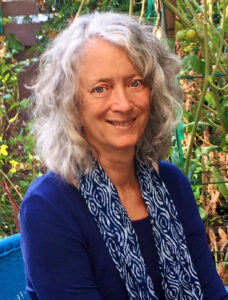
Life presents us with a constant series of decisions. How can we know which choice is the right one in every situation?
- Are you seeking wealth, power, and prestige – or well-being, happiness, and inner fulfillment?
- Do you want that new job because it will pay more and enhance your self-esteem and prestige? Or are you looking for opportunities to grow personally, expand your professional repertoire, serve others more effectively, and/or balance your work and personal lives?
- Are you looking for an individual advantage, or for the greater good of all?
- If you’re an employer, are you looking for the most skilled applicant, or an employee with people skills, or an employee with values, a personal manner, and goals that resonate with your own?
- Are your health-care goals oriented toward optimal health and prevention of disease, or to dispatch a present illness as quickly as possible?
- If you have a deadly disease, is your goal to live as long as possible, or to live the life that remains for you as well as possible?

How can we reach clarity about important decisions such as these?
It can be very helpful, of course, to seek the counsel of others whose wisdom and experience we trust – “wisdom” implying that they don’t have a secret agenda, and that they do have valuable expertise and a solid history of good decisions.
Seeking the counsel of others doesn’t commit us to following their advice – only to evaluate whether it is applicable to our own particular situation.
- When making important decisions, a good first step is to clear the deck mentally and emotionally and make sure that we’re able to remain impartial.
- Check your level of emotional attachment – be aware that if you’re clinging to a fondly held course of action, it may block your path to recognizing better options.
- At a mental level, listing the pluses and minuses can help you discern what you’ll be will to give and what you might get by following a particular course of action.
- Beyond the mental and emotional factors that are bound to influence your decision-making, there are a number of tools that can help you tap into your inner knowledge – your experience, learnings, and if you will, a higher intuitive sense of the right thing to do.
- Unedited journaling, as taught by Ira Progoff, author of At a Journal Workshop and Intensive Journaling, can help you connect to your own inner wisdom and good sense. In this type of journaling, you dialogue with your job, your partner, your dreams, etc., to help you understand what you’re really seeking, the factors that are distressing you or distorting your vision, and find your inner sources nourishment and understanding.
- Tools like Tarot cards, the I Ching, and the Ruins can help step aside from the emotional and mental realms and suggest calm wise perspectives that will help you arrive at clear answers.
Taking decision-making to a higher level, meditation, contemplation, and prayer have a millennially tested power to attune us to a higher reality. Meditative practices help us develop our intuition, unleash our creativity, and calm the stresses, anxieties, and fears that can cloud our vision.
As you learn to separate your wise, calm, impersonal intuition from your restless emotional desires, you’ll be able to make better decisions. And by wholeheartedly committing to a wise course of action, your will power will grow stronger and help you achieve the best outcome.
Often, once we’ve decided on a course of action, a better course will suddenly appear. The key is to remain committed to staying the course, while being open to changing circumstances. Staying attuned to a higher reality will help you make these course adjustments wise along the way.
To discuss the services we offer, we invite you to get in touch in any of these convenient ways: (1) give us a call at 650-961-1660, (2) use the Contact Form, or (3) follow the link to Consultations – Pacific Naturopathic. Thank you!
